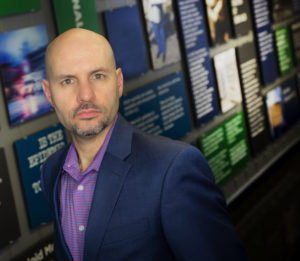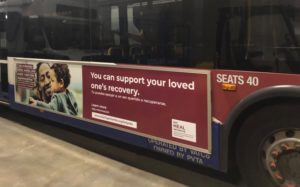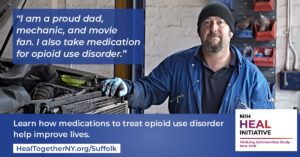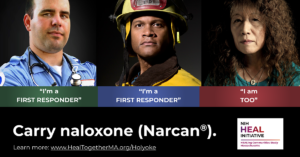HSC Regents Professor Dr. Scott Walters and colleagues share progress addressing nation’s opioid crisis in new scientific publication
October 20, 2020 • Uncategorized
 A special issue of the peer-reviewed scientific journal Drug and Alcohol Dependence has been released, profiling the efforts of a National Institutes of Health (NIH) study to address the nation’s opioid crisis.
A special issue of the peer-reviewed scientific journal Drug and Alcohol Dependence has been released, profiling the efforts of a National Institutes of Health (NIH) study to address the nation’s opioid crisis.
$350 million in funding has been committed to this program between 2019-2022 in what is notably the largest implementation science study ever conducted in the field of addiction.
Scott Walters, PhD, Regents Professor at the University of North Texas Health Science Center at Fort Worth (HSC), is Steering Committee Chair of this program – the HEALing Communities Study (Helping to End Addiction Long-term) – developed through a partnership of the National Institute on Drug Abuse (NIDA) and SAMHSA, the U.S. Department of Health and Human Services’ Substance Abuse and Mental Health Services Administration.
The study will create a national model to address the opioid crisis by speeding solutions and reducing opioid deaths in 67 highly impacted communities across four states – Ohio, Kentucky, Massachusetts and New York – representing more than 10 million people.
Over the last year, research sites at the University of Kentucky, Boston Medical Center, Columbia University and Ohio State University have been testing the implementation of a set of evidence-based strategies, with Dr. Walters managing the project from a national perspective.
The just-published, special edition of Drug and Alcohol Dependence contains 10 research papers on the HEALing Communities’ work over the last year, including the NIH vision and study protocol, implementation methods and measurement. Dr. Walters is one of three guest editors for the issue, along with NIDA and SAMHSA scientific directors. The entire edition is provided as open access, subscription-free, to the public.
“This special issue is important scientifically because of the scope of the problem and breadth of the study,” Dr. Walters said. “In 2017, almost 48,000 Americans died from an opioid overdose. More people died from opioid overdose than from car accidents. The irony is that all of this is preventable. There are proven strategies to reduce opioid use disorder and overdose.”
“As staggering as these numbers are, they are likely underestimates,” Dr. Walters said. “The U.S. has more than 2 million people with an opioid use disorder. It’s hard to imagine the damage that does to families and communities.”
Small gains in reducing those numbers that were achieved prior to 2020 were washed away this year as the nation struggled with anxiety, stress and negative mental health consequences of the COVID-19 pandemic.
“The sharp increases in overdose in the last six months have greatly affected the course of the HEALing Communities study,” Dr. Walters noted. “As we work to solve one crisis in the middle of a second crisis, we are creating a model for future ‘twindemics’ in the new world that exists right now.”
“We already know what works to reduce overdose and opioid use disorder – notably medication to help with recovery, and naloxone to reverse overdoses and safer prescribing practices. This study tests the implementation of those evidence-based practices, and ways to help a community actually put them into practice,” he added.

Dr. Walters likens these efforts to a “one, two, three punch,” with community engagement, a menu of evidence-based practices and communications campaigns to reduce the stigma around seeking help and increase demand for services.
“We’ve been able to capitalize on some aspects of the pandemic, for instance building attendance at community coalition meetings by taking them online, and ‘fast tracking’ distribution of naloxone to people released early from jail,” Dr. Walters noted. “We accelerated certain efforts, along with our accompanying media campaigns, to respond to the challenges of the pandemic.”
The new Drug and Alcohol Dependence issue detailing the HEALing Communities’ work is consistent with the study’s goal to share information with other researchers.
“We want to conduct this project in a glass house, sharing methods as we are able, describing how communities are engaging, how our media campaigns drive demand, and showing better ways to measure outcomes,” Dr. Walters said.
“No state has been immune to the effects of the opioid epidemic. We all benefit from the work being done to offer new hope for individuals, families and communities impacted by this devastating public health crisis.”
Read more here about the HEALing Communities study in this special issue of Drug and Alcohol Dependence.
Examples of HEALing Communities public service campaigns across different states:



Social media